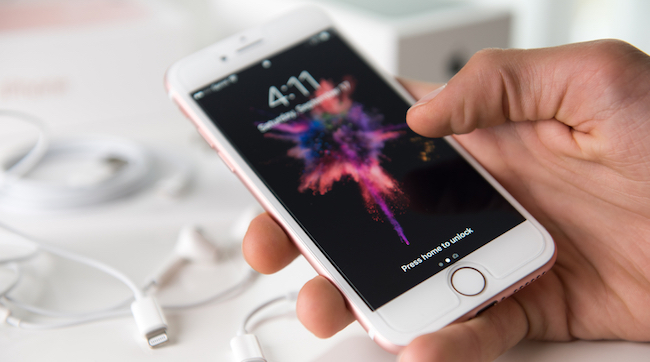
Shutterstock
I have a confession to make: Up until last week, I was the owner of an iPhone 5S. I know this might make some people gasp and crumple to the floor like a Victorian woman at a magic show, but for three years of my life, it was all I knew. We didn’t have dongles or Portrait Mode or facial recognition technology, but we had each other. Hemingway once said “There is nothing more loyal than a book,” but I like to think he would have felt a bit differently if he’d ever met my iPhone.
My friend aged slowly but gracefully, but we both knew things were coming to an end. With iOS update after iOS update, it slowly started to do everything an old person does: completing tasks at half the speed it once did, falling asleep at random times, and constantly reminding me I was running out of space like it didn’t evern recall telling me that 12 hours before.
I did virtually everything I could before I was forced to take my iPhone behind the digital woodshed, but I told myself there was no one I could blame but Father Time. However, if a recent report is to be believed, there might have actually been some foul play involved after all. The suspect? Apple.
It was previously reported that any device running iOS 11 was suffering a major decline in battery performance, but that’s not the only update that’s come with a cost. The Verge reports developer John Poole revealed that two recent system updates— iOS 10.2.1 and 11.2.0— have caused a throttle in CPU performance in iPhone 6, 6S, and 7 devices with batteries on the older side (Poole didn’t include the 5S in his research because there was no real reason to waste time compiling stats on an iPhone used by three people in the world).
When asked for a statement, Apple essentially confirmed the slowdown but did try to justify it:
Lithium-ion batteries become less capable of supplying peak current demands when in cold conditions, have a low battery charge or as they age over time, which can result in the device unexpectedly shutting down to protect its electronic components.
Last year we released a feature for iPhone 6, iPhone 6s and iPhone SE to smooth out the instantaneous peaks only when needed to prevent the device from unexpectedly shutting down during these conditions. We’ve now extended that feature to iPhone 7 with iOS 11.2, and plan to add support for other products in the future.
Some users have said their device started working normally once the battery was replaced, but others are concerned the drop in performance might lead to people simply purchasing a newer model.
Many have theorized that a number of companies have a business model at least partially based on the idea of “planned obsolescence,” which means they purposely plan for a products to become obsolete or nonfunctional in a certain amount of time— which is why ink cartridges stop working when the ink level is still at 3/4 and why you’re forced to drop $200 on the 28th edition of a textbook because they changed one of the numbers in Problem Set 43.
I hope Apple can sleep well knowing my iPhone’s blood (or battery acid, I guess?) is on their hands.